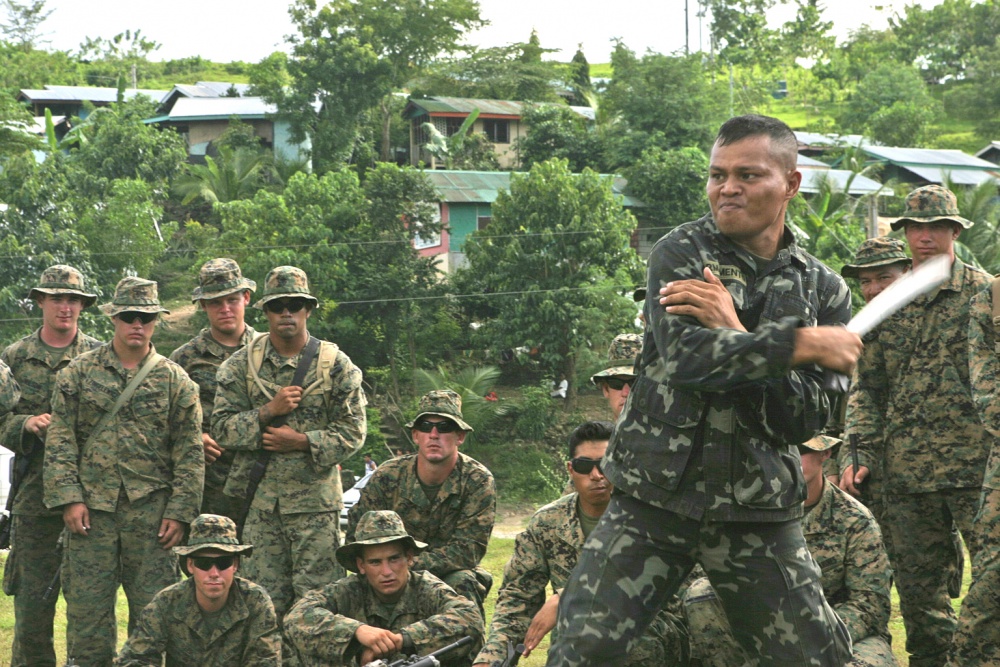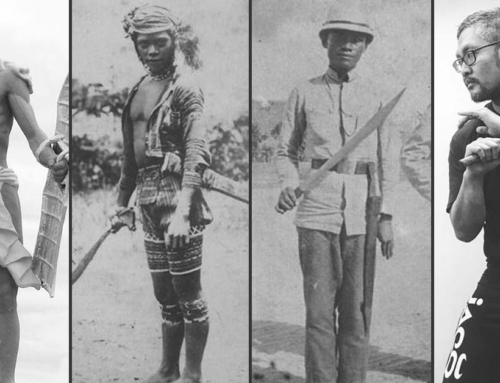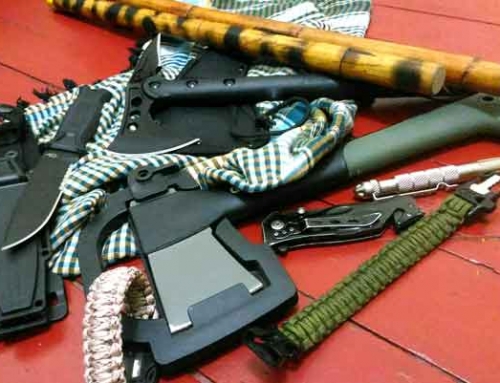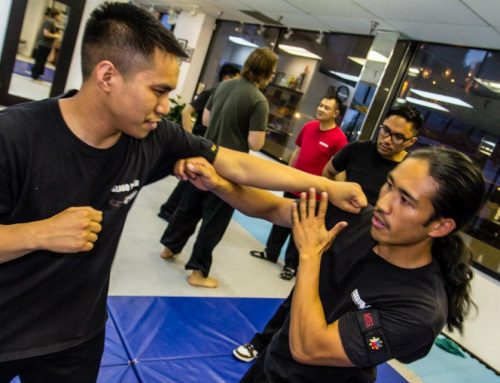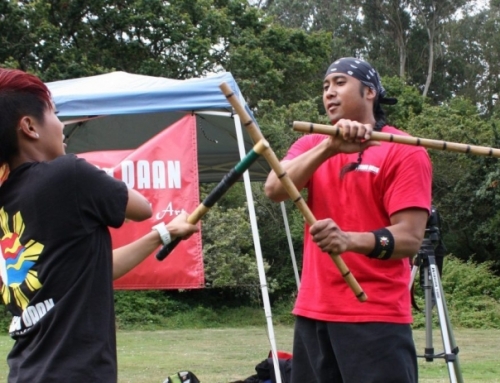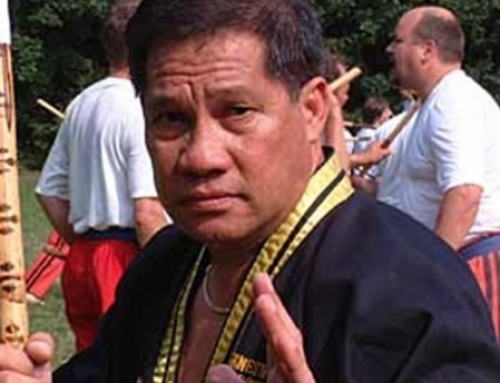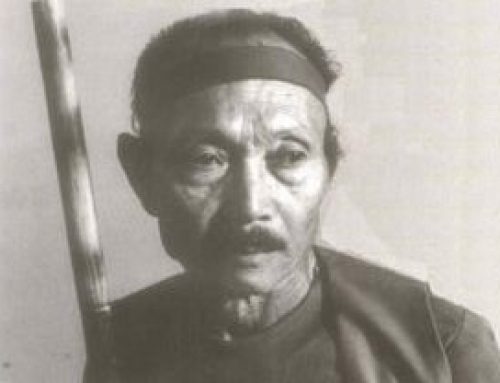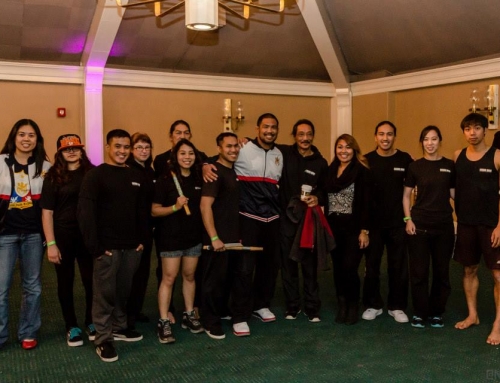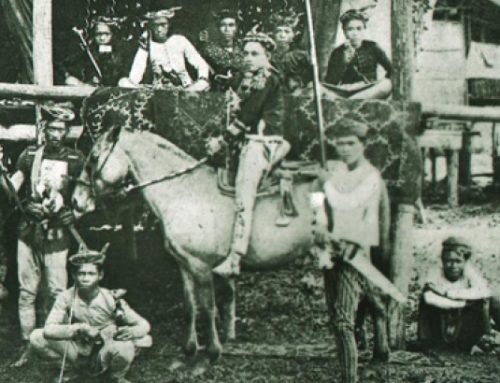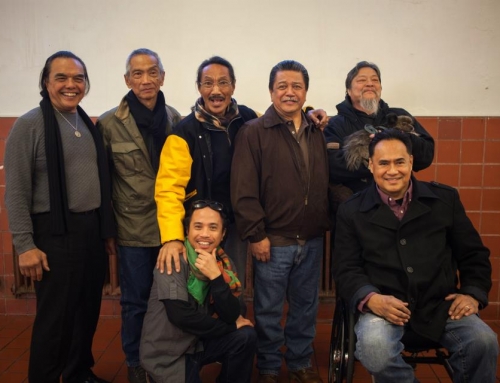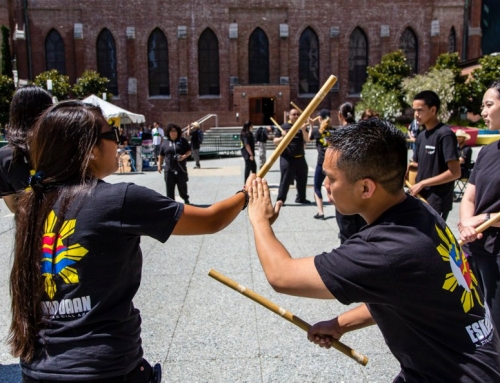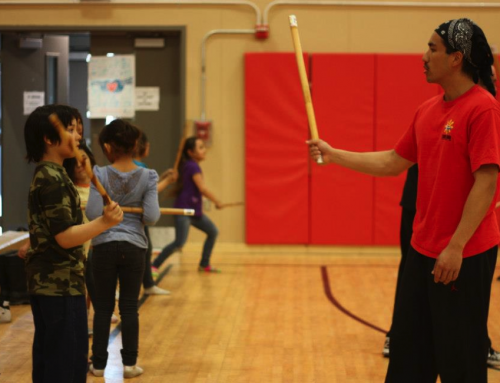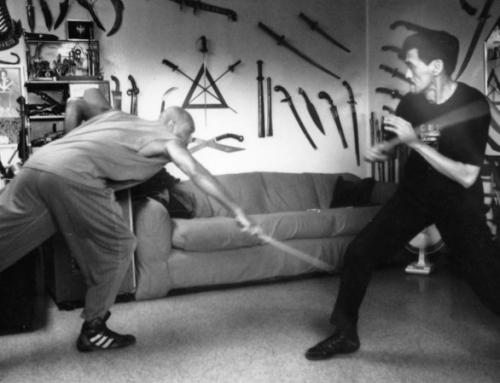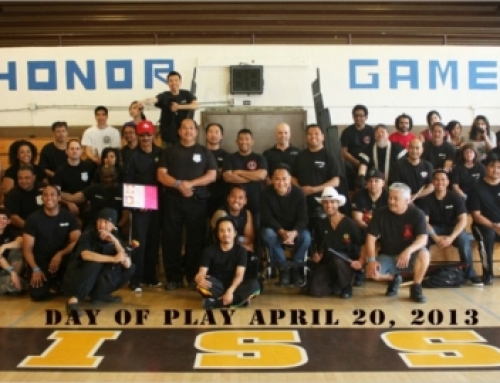CROW VALLEY, Philippines- —From the fighting styles of Jeet Kune Do to Muay Thai, the classic blade fighting techniques of Pekiti-Tirsia Kali is a century’s old martial art that is so effective it has been implemented in many of today’s modern military training world wide.
Marines with Battalion Landing Team (BLT), 3rd Battalion, 1st Marines, 31st Marine Expeditionary unit (MEU), got a taste of Pekiti-Tirsia Kali from Philippine Marine instructors here, Oct. 21, during Amphibious Landing Exercise FY 2009 (PHIBLEX 09).
The class was taught to give the U.S. Marines insight into an unfamiliar skill and learn more about the Philippine culture, according to Philippine Marine Staff Sgt. Carlito Englatiera, a Pekiti-Tirsia Kali instructor.
Pekiti-Tirsia Kali, a combat-oriented Filipino Martial Art which utilizes blades and sticks, was founded in 1897 by Norberto Tortal. During the class, instructors gave in-depth detail in their explanation of moves during the live demonstrations.
“The class was downright impressive,” said 1st Lt. Rolando Medina, the BLT 3/1 Adjutant. “They taught the class with a tie-in just like our mixed martial arts classes. The class was also taught by the numbers which is how we learn.”
During the class, Marines were taught parrying, striking and killing techniques with several different blades and sticks as well as being able to do the proper footwork during close quarters combat scenarios.
“They had very interesting kill moves,” Medina said. “The skill is advanced and their moves are more fluid than any other martial art I have seen.”
The Philippine Marines teaching the class showed great skill and poise, according to 2nd Lt. Scott Brown, a supply officer with BLT 3/1.
“It was amazing that they were skilled enough to train us because they have only been practicing Pekiti-Tirsia for three months,” Brown said. “I would definitely train with them more in depth if I had the opportunity.”
Pekiti-Tirsia Kali has been such a big hit in the Philippine Marines that it is now being taught and incorporated into their recruit training so the entirety of the Philippine Marine Corps, including officers, will learn the deadly skill, according to Philippine Marine Staff Sgt. Carlito Englatiera a Pekiti-Tirsia Kali instructor.
“It has already proven itself as a useful skill in the southern Philippines in combat against the rebels,” Englatiera said. “So it is a good thing because we will all be more proficient in combat.”
While Pekiti-Tirsia Kali has shown its worth in combat, it is also a valuable skill for everyday street life.
“Everyone should learn this skill because it’s not only useful in military combat but also in everyday life,” Englatiera said. “If you have a blade and you encounter an enemy in close combat you have a 90 percent chance of survival.”
The class was not only a way to show Marines knew moves and ideas, but it provided a means of enhancing interoperability between U.S. and Philippine forces.
“I am looking forward to more training with the U.S. Marines so that we can enhance and improve each others’ skills,” Englatiera said. “I am glad that the U.S. Marines come every year to train and I look forward to the next time they come.”
PHIBLEX ’09 is a III Marine Expeditionary Force-directed bilateral training exercise conducted in the Philippines with units from III MEF and units from the Armed Forces of the Philippines (AFP).
By Lance Cpl. Ryan Wicks, Unit 31st MEU

